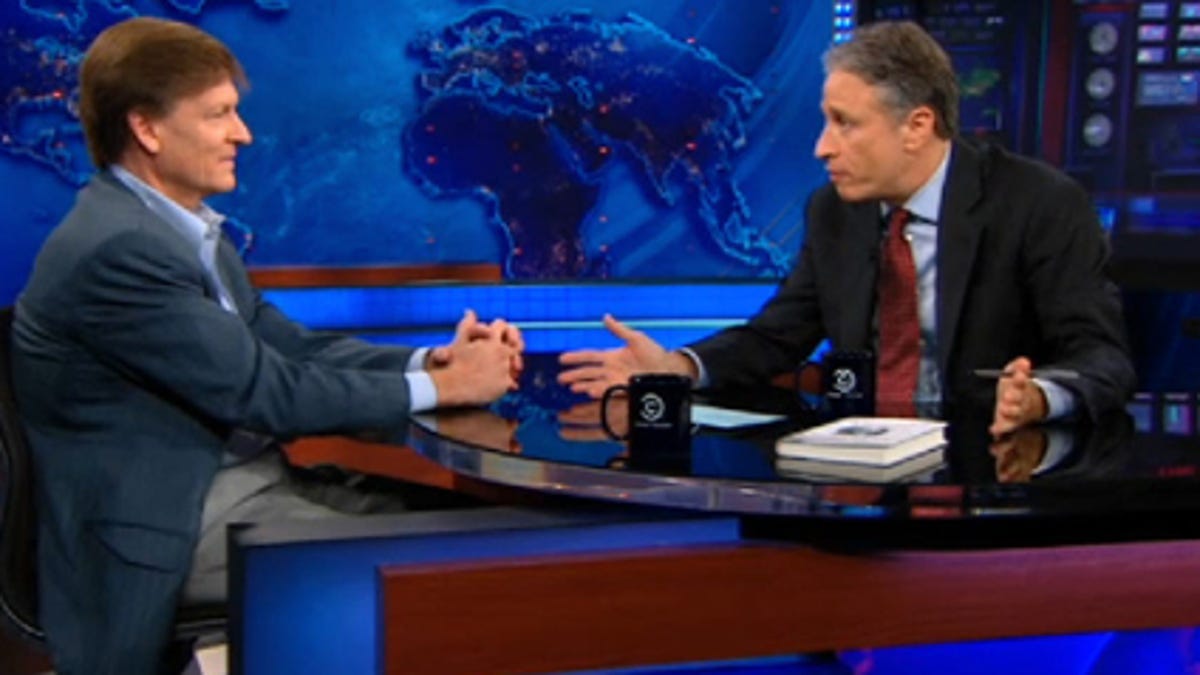Viacom escalates DirecTV fight, pulls popular shows from Web
Episodes of "Jersey Shore" and "The Daily Show" have been pulled from the Internet, and their sites are instead plastered with banners and pop-ups complaining about DirecTV.

The programming dispute between DirecTV and Viacom is starting to affect the general population, with Viacom escalating the issue by pulling some of its popular shows from the Internet.
"The Daily Show," "The Colbert Report," and "Jersey Shore" are among the popular shows no longer available online as of yesterday. Other shows, such as "South Park," remain online, and back episodes of some pulled shows can still be found on Hulu.
DirecTV and Viacom have been arguing over how much a distributor should pay an entertainment company for content. Amid that fight, Viacom has pulled its shows off DirecTV. Meanwhile, DirecTV had told irritated subscribers to temporarily watch the shows on the Web. But by darkening its Web sites this week, Viacom has effectively ended that alternative. By pulling shows from the Internet, however, Viacom risks enraging not only DirecTV's 20 million subscribers, but fans in general who have no stake in this fight.
The dispute has broader implications for the entertainment industry. Some analysts are beginning to wonder what the actual value of Viacom's networks are. Whatever rate it ultimately agrees to with DirecTV could set a precedent for future negotiations not only for Viacom and DirecTV, but other entertainment providers and distributors such as the cable and telecom companies.
Meanwhile, anyone who goes to a Viacom Web site, whether it's the one for "South Park" or "The Colbert Report," is treated to a mandatory pop-up add complaining about the blackout and dispute with DirecTV. The ad urges viewers to call DirecTV and press for a resolution.
"Viacom is now not only holding DirecTV customers hostage, but all online viewers as well," DirecTV said in a statement sent today to CNET. "Is this just another underhanded negotiating tactic, or does this mean that Viacom will no longer offer its content free online?"
A company representative declined to discuss the progress of the talks, noting it was still early on the West Coast.
Viacom, however, said it pulled some of its content because DirecTV was marketing online viewing as a temporary workaround. Viacom noted that there are still thousands of full episodes online, but said the content is intended as a marketing tool for its partners, and not an alternative to the traditional cable or satellite model.
Comedy Central, Nickelodeon, and 24 other popular cable channels went dark late Tuesday on DirecTV after the companies failed to reach an agreement on their programming fees. DirecTV said Viacom is asking for $1 billion more in fees for the rights to air the channels, while Viacom argues that the figure amounts to pennies per day per subscriber.
In a blog post yesterday, Viacom said there were no new ideas offered for a resolution, and maintained that the terms that DirecTV offered are below market rates.
DirecTV has similarly started a site to argue its case, which includes a message from CEO Mike White.
Updated at 8:34 a.m. and 8:43 a.m. PT: to include responses from DirecTV and Viacom.

